Antifungal Creams
>Discover powerful antifungal creams designed to effectively treat athlete’s foot, ringworm, jock itch, candida, and yeast infections. Our clinically-tested, fast-acting creams relieve itching, burning, redness, and irritation while restoring healthy skin. Infused with active ingredients like clotrimazole and miconazole, these dermatologist-recommended creams are safe for sensitive skin. Shop our antifungal creams for rapid relief and long-lasting protection against fungal infections.
-
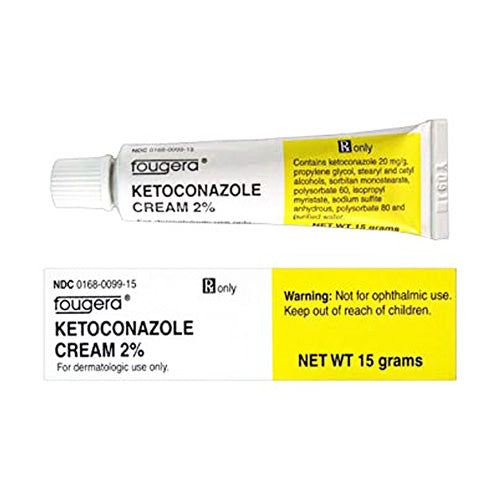 Year End Sale 37%
Original price $ 26.95Current price $ 16.95
Year End Sale 37%
Original price $ 26.95Current price $ 16.95Ketoconazole Topical Antifungal Cream 2% 15 gram Tube
Sandoz32 reviewsKetoconazole Topical Antifungal Cream 2% 15 gram is used to treat fungal skin infections such as athlete's foot, jock itch, and ringworm. It works ...
View full details1 -
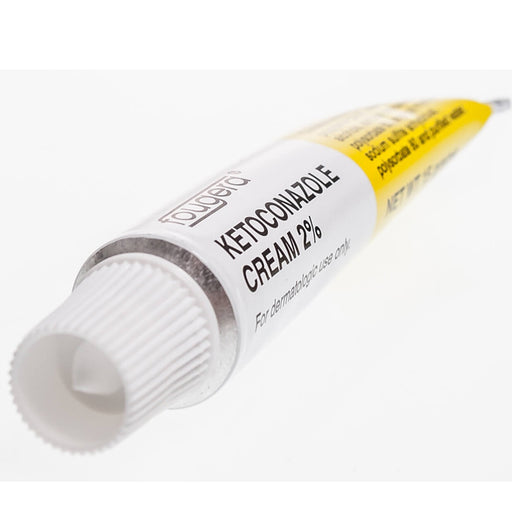 Year End Sale 21%
Original price $ 37.95Current price $ 29.95
Year End Sale 21%
Original price $ 37.95Current price $ 29.95Ketoconazole Topical Cream 2% 30 Gram Tube
Sandoz-Fougera18 reviewsKetoconazole topical antifungal cream 2% is a medication used to treat fungal infections of the skin, including ringworm, athlete's foot, jock itch...
View full details1 -
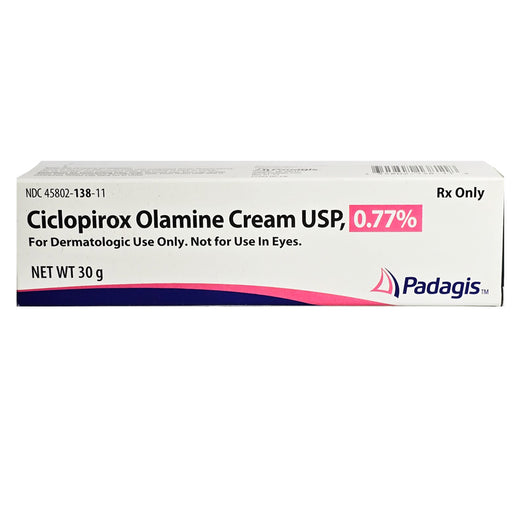 Year End Sale 15%
Original price $ 19.95Current price $ 16.90
Year End Sale 15%
Original price $ 19.95Current price $ 16.90Ciclopirox Olamine Cream 0.77% USP 30 gram by Padagis (Rx)
Padagis15 reviewsCiclopirox Olamine Cream 0.77% USP by Padagis is an effective antifungal treatment designed to combat a variety of fungal skin infections. Ideal fo...
View full details🔒 Medical License Required -
 Year End Sale
from $ 19.95
Year End Sale
from $ 19.95Nystatin Cream 100,000 Units USP (Rx)
Padagis US12 reviewsNystatin Cream 100,000 Units is a highly effective antifungal treatment designed to alleviate and manage fungal skin infections. This topical medic...
View full details🔒 Medical License Required -
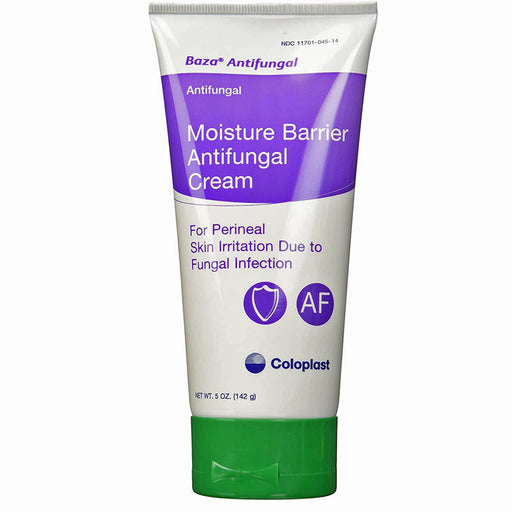 Year End Sale 30%
Original price $ 29.80Current price $ 20.90
Year End Sale 30%
Original price $ 29.80Current price $ 20.90Baza Antifungal Cream by Coloplast 5 oz
Coloplast Corporation5 reviewsBaza Antifungal Cream by Coloplast is a medicated cream designed to treat and prevent fungal infections, such as athlete’s foot, jock itch, and rin...
View full details1 -
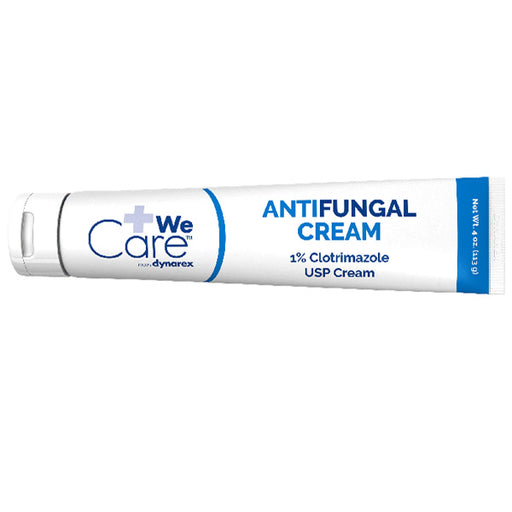 Year End Sale 25%
Original price $ 5.95Current price $ 4.49
Year End Sale 25%
Original price $ 5.95Current price $ 4.49Antifungal Cream Clotrimazole 1% Tube
Dynarex8 reviewsClotrimazole Cream 1% is a medication used to treat fungal infections of the skin, such as athlete's foot, jock itch, and ringworm. It works by kil...
View full details1 -
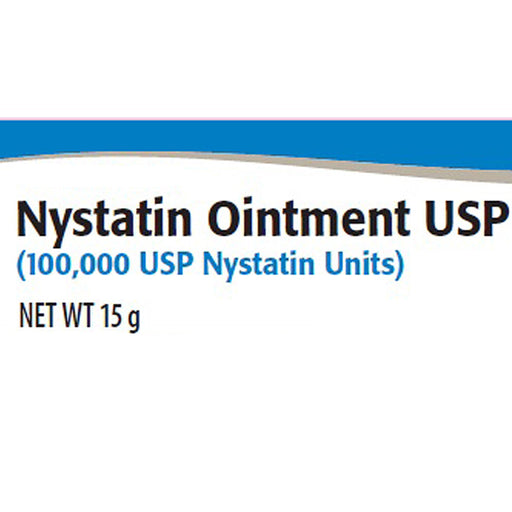 Year End Sale 28%
Original price $ 22.95Current price $ 16.59
Year End Sale 28%
Original price $ 22.95Current price $ 16.59Nystatin Antifungal Ointment 100,000 USP (Rx)
Perrigo3 reviewsNystatin Antifungal Ointment is a topical cream or ointment used to treat fungal infections of the skin. Nystatin is a polyene antifungal agent tha...
View full details🔒 Medical License Required -
 Year End Sale 36%
Original price $ 47.00Current price $ 29.95
Year End Sale 36%
Original price $ 47.00Current price $ 29.95Ciclopirox Cream 0.77% by Glenmark Pharmaceuticals 15 Gram (RX)
Glenmark Pharmaceuticals10 reviewsCiclopirox Cream 0.77% by Glenmark Pharmaceuticals is a topical antifungal medication used to treat various fungal skin infections. The active ingr...
View full details🔒 Medical License Required -
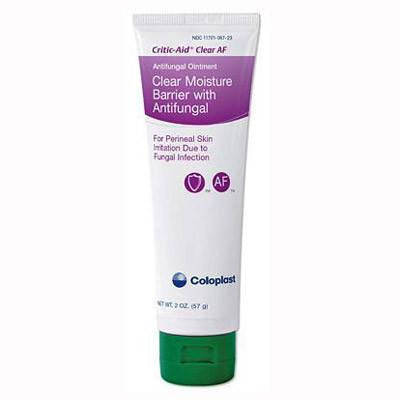 Year End Sale
$ 16.95
Year End Sale
$ 16.95Critic-Aid Clear AF Moisture Barrier 5oz Tube
Coloplast Corporation1 reviewCritic Aid Clear AF is a topical moisture barrier cream fortified with skin fungus, along with petrolatum and dimethicone. This cream is easy to ap...
View full details1 -
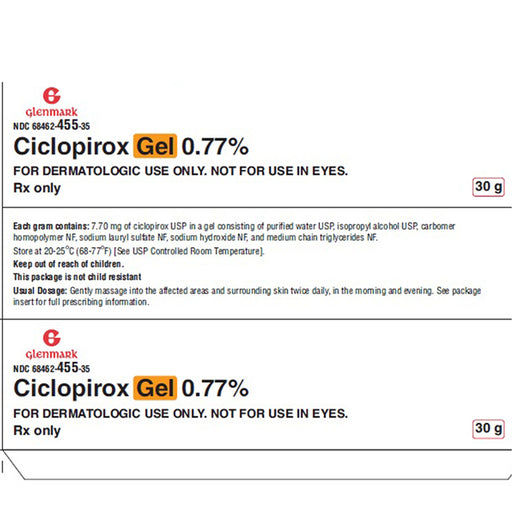 Year End Sale 23%
Original price $ 129.95Current price $ 99.95
Year End Sale 23%
Original price $ 129.95Current price $ 99.95Ciclopirox Gel 0.77% Tube, 30 grams (Rx)
Glenmark Pharmaceuticals2 reviewsCiclopirox Gel 0.77% is a high-efficacy, prescription-strength topical antifungal treatment formulated by Glenmark Pharmaceuticals. Designed for de...
View full details🔒 Medical License Required -
 Sold out
Original price $ 34.95Current price $ 22.95
Sold out
Original price $ 34.95Current price $ 22.95Nystatin Cream 100,000 Units by Torrent Pharmaceuticals, 30 grams (Rx)
Torrent Pharmaceuticals1 reviewNystatin Cream 100,000 Units by Torrent Pharmaceuticals is a powerful antifungal medication used to treat a range of fungal infections of the skin,...
View full details -
 Year End Sale 34%
Original price $ 8.95Current price $ 5.95
Year End Sale 34%
Original price $ 8.95Current price $ 5.95Clotrimazole Cream 1% Antifungal Relief 30 Gram Tube (Rx)
Taro Pharmaceuticals5 reviewsClotrimazole Cream 1% by Taro is an effective antifungal treatment designed to relieve itching, burning, cracking, and discomfort associated with f...
View full details🔒 Medical License Required -
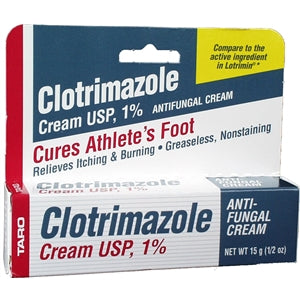 Year End Sale 29%
Original price $ 9.79Current price $ 6.95
Year End Sale 29%
Original price $ 9.79Current price $ 6.95Clotrimazole Antifungal Cream 1% by Taro, 15 grams (Rx)
Taro Pharmaceuticals1 reviewTaro Clotrimazole Cream 1% is an antifungal medication used to treat various fungal and certain yeast infections. It works by stopping the growth o...
View full details🔒 Medical License Required -
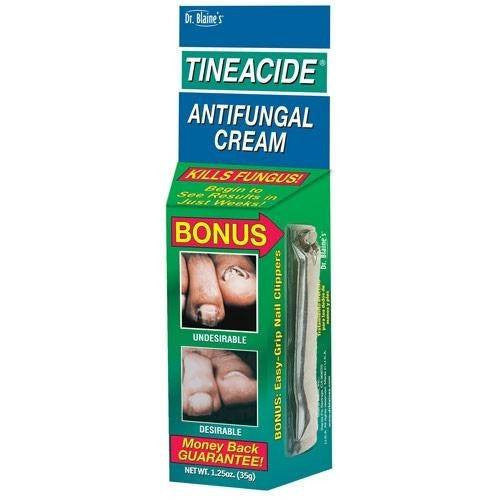 Year End Sale 15%
Original price $ 19.95Current price $ 16.95
Year End Sale 15%
Original price $ 19.95Current price $ 16.95Tineacide Antifungal Foot & Nail Cream 1.25 oz
Blaine Labs1 reviewTineacide Antifungal Cream is designed to kill skin fungus, prevent the spread of fungal, yeast, and bacterial infections, and effectively cure ath...
View full details1 -
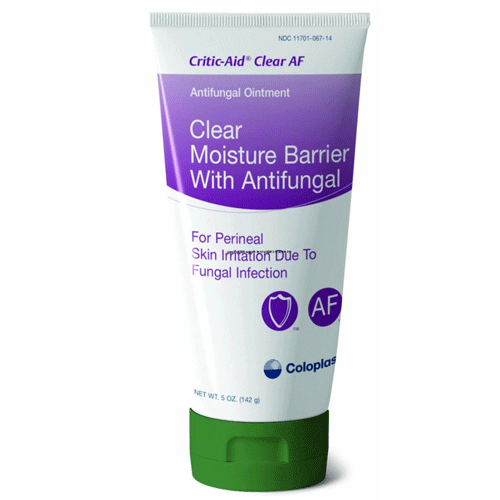 Year End Sale
from $ 16.00
Year End Sale
from $ 16.00Critic-Aid Skin Moisture Barrier Skin Protectant
Coloplast Corporation1 reviewColoplast 1947 Critic-Aid Skin Paste Thick Moisture Barrier Skin Protectant is an advanced skin care line specially designed to protect the skin f...
View full details1 -
 Year End Sale 32%
Original price $ 6.95Current price $ 4.75
Year End Sale 32%
Original price $ 6.95Current price $ 4.75Tolnaftate 1% Antifungal Cream 1 oz by Trifecta Pharmaceuticals
Trifecta Pharmaceuticals1 reviewTolnaftate 1% Antifungal Cream by Trifecta Pharmaceuticals is an effective topical treatment designed to relieve and heal common fungal infections....
View full details1 -
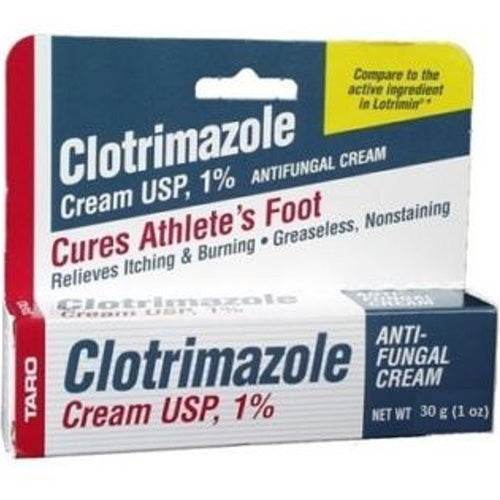 Year End Sale 12%
Original price $ 5.99Current price $ 5.25
Year End Sale 12%
Original price $ 5.99Current price $ 5.25Clotrimazole Cream 1% Antifungal 30 gram
Taro Pharmaceuticals1 reviewTaro Clotrimazole Cream 1% Antifungal 30 gram is a highly effective topical medication used to treat various fungal infections on the skin. This cr...
View full details1 -
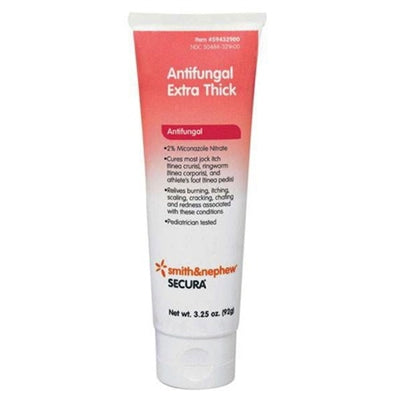 Year End Sale 31%
Original price $ 12.98Current price $ 8.97
Year End Sale 31%
Original price $ 12.98Current price $ 8.97Secura Antifungal Extra-Thick Cream (2% Miconazole Nitrate)
Smith & NephewNo reviewsSecura Antifungal Extra-Thick Cream used to treat superficial fungal infections including tinea cruris (jock itch), tinea corporis (ringworm), (ath...
View full details1 -
 Year End Sale 34%
Original price $ 5.99Current price $ 3.95
Year End Sale 34%
Original price $ 5.99Current price $ 3.95Clotrimazole 1% Antifungal Treatment Cream For Itching & Burning Relief 1 oz
Rugby Laboratories2 reviewsFight fungal infections fast with Clotrimazole 1% Antifungal Cream by Rugby Laboratories – the #1 choice for effective, doctor-recommended relief f...
View full details1 -
 Year End Sale 27%
Original price $ 36.95Current price $ 27.00
Year End Sale 27%
Original price $ 36.95Current price $ 27.00Triple Paste AF Antifungal Ointment (2% Miconazole Nitrate)
Emerson Healthcare1 reviewDiscover the healing power of Triple Paste AF Antifungal Ointment, meticulously crafted to combat stubborn fungal infections with precision and car...
View full details1 -
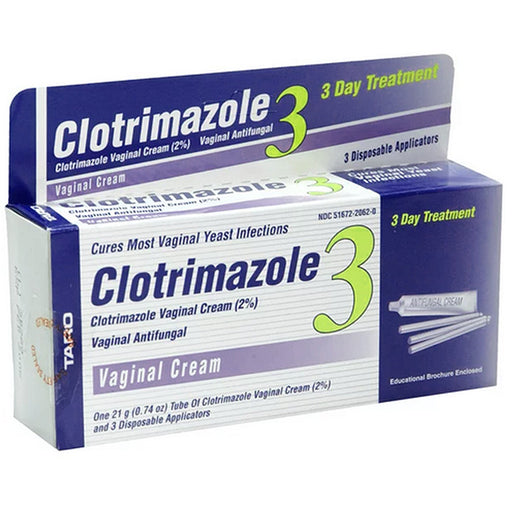 Year End Sale 36%
Original price $ 14.95Current price $ 9.50
Year End Sale 36%
Original price $ 14.95Current price $ 9.50Clotrimazole 3-Day Vaginal Antifungal Cream 2% by Taro
Teva Pharmaceuticals1 reviewClotrimazole 3-Day Vaginal Antifungal Cream 2% is a highly effective treatment for yeast infections. It works by killing the fungus that causes the...
View full details1 -
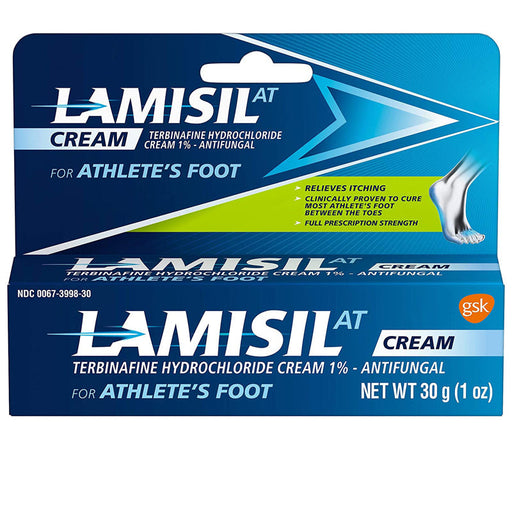 Year End Sale 23%
Original price $ 25.95Current price $ 19.95
Year End Sale 23%
Original price $ 25.95Current price $ 19.95Lamisil AT Antifungal Athlete’s Foot Cream 1.05 oz (Terbinafine Hydrochloride)
Glaxo Smith KlineNo reviewsLamisilAT Prescription Strength Athletes Foot Antifungal Cream for athletes foot treatment relieves symptoms and kills the fungus that causes athle...
View full details1 -
 Year End Sale 40%
Original price $ 28.95Current price $ 17.50
Year End Sale 40%
Original price $ 28.95Current price $ 17.50Ketoconazole Topical Antifungal Cream 2% Teva 30 gram tube (Rx)
Teva PharmaceuticalsNo reviewsPrescription-Strength, Fast-Acting Relief for Fungal Skin Infections Trusted By Dermatologists. Clinically Proven. Unbeatable Fungal Infection Defe...
View full details🔒 Medical License Required -
 Year End Sale 40%
Original price $ 4.95Current price $ 2.95
Year End Sale 40%
Original price $ 4.95Current price $ 2.95Tolnaftate 1% Antifungal Cream 0.5 oz by Rugby
Major Rugby Labs1 reviewPowerful Athlete’s Foot, Jock Itch, and Ringworm Treatment Experience Fast, Proven Relief from Fungal Skin Infections. Eliminate irritating fungal ...
View full details1 -
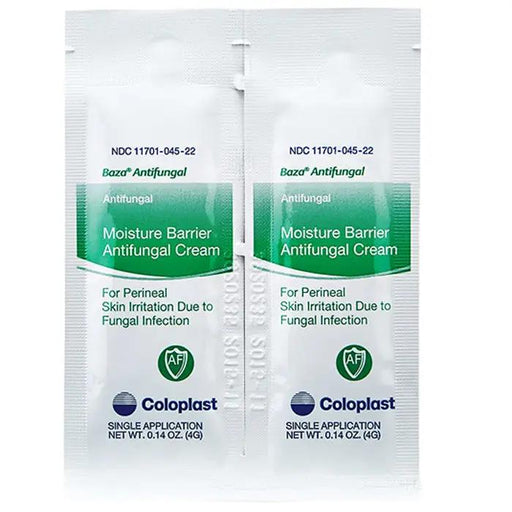 Year End Sale 8%
Original price $ 259.00Current price $ 239.00
Year End Sale 8%
Original price $ 259.00Current price $ 239.00Baza Antifungal Moisture Barrier 4 gram Packets, 300/box
Coloplast CorporationNo reviewsBaza Antifungal Moisture Barrier Cream is a topical cream used for the prevention and treatment of fungal skin infections. The cream forms a protec...
View full details1 -
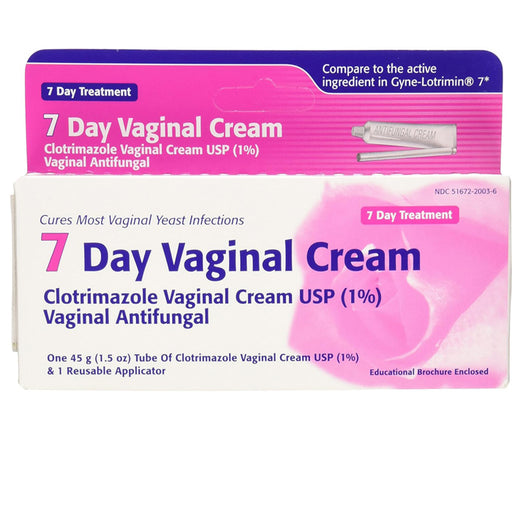 Year End Sale 32%
Original price $ 6.99Current price $ 4.75
Year End Sale 32%
Original price $ 6.99Current price $ 4.75Taro Clotrimazole 7-Day Vaginal Cream 1% with Reusable Applicator 45 gram
Taro PharmaceuticalsNo reviewsTaro Clotrimazole 7-Day Vaginal Cream 1% with Reusable Applicator 45 gram is a highly effective treatment for women suffering from vaginal yeast in...
View full details1 -
 Year End Sale 29%
Original price $ 22.95Current price $ 16.25
Year End Sale 29%
Original price $ 22.95Current price $ 16.25Lotrimin Ultra Jock Itch Cream with Butenafine Hydrochloride 1%, 12 Grams
Bayer HealthcareNo reviewsLotrimin Ultra Jock Itch Cream provides powerful relief from the discomfort of jock itch by effectively targeting the fungal infection. With a clin...
View full details1 -
 Year End Sale 32%
Original price $ 16.95Current price $ 11.45
Year End Sale 32%
Original price $ 16.95Current price $ 11.45Tinactin Athletes Foot Cream with Tolnaftate 1%
Bayer HealthcareNo reviewsTinactin Athlete's Foot Cream with Tolnaftate 1% is an antifungal medication used to treat athlete's foot, jock itch, and ringworm. Tolnaftate work...
View full details1 -
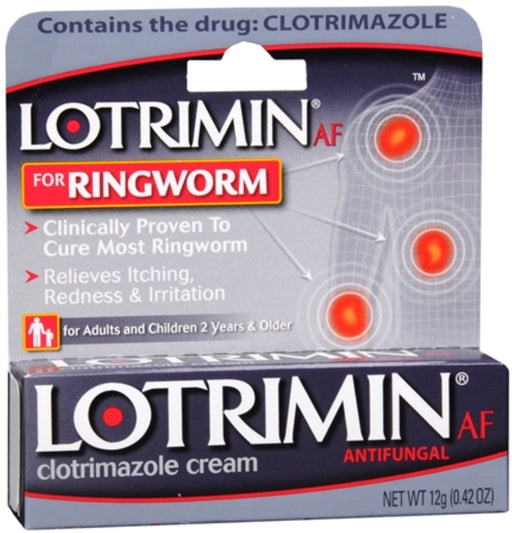 Year End Sale
$ 12.98
Year End Sale
$ 12.98Lotrimin AF (Antifungal) Ringworm Cream 12gm (1% Clotrimazole)
Bayer HealthcareNo reviewsLotrimin AF Ringworm Cream Provides soothing itchy skin relief: Treat itchy ringworm on the body with Lotrimin AF Ringworm Cream fungus treatment...
View full details1 -
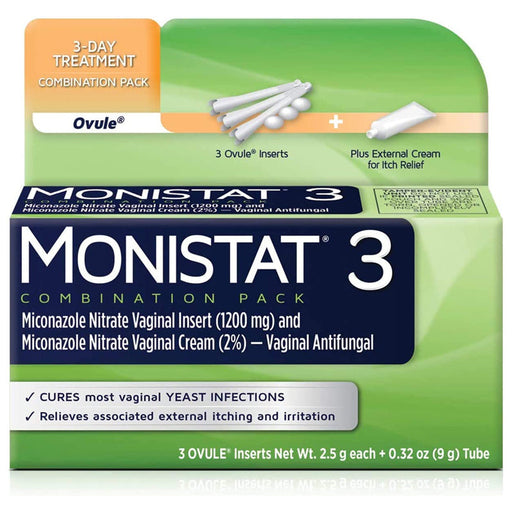 Year End Sale 19%
Original price $ 24.50Current price $ 19.95
Year End Sale 19%
Original price $ 24.50Current price $ 19.95Monistat 3 Vaginal Antifungal Miconazole Nitrate Prefilled Cream 3-Day Treatment
MedTechNo reviewsMONISTAT 3-Dose Yeast Infection Treatment is a great regular strength nighttime option for women who want a less concentrated treatment at moderat...
View full details1 -
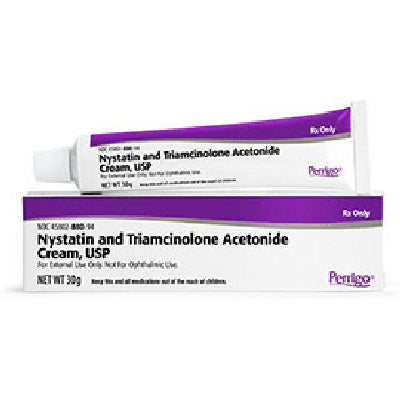 Year End Sale 30%
Original price $ 49.95Current price $ 35.00
Year End Sale 30%
Original price $ 49.95Current price $ 35.00Nystatin and Triamcinolone Acetonide Cream 0.1% 15 gram Tube (Rx)
Padagis USNo reviewsNystatin and Triamcinolone Acetonide Cream 0.1% is a powerful combination medication often prescribed for the treatment of various skin conditions....
View full details🔒 Medical License Required -
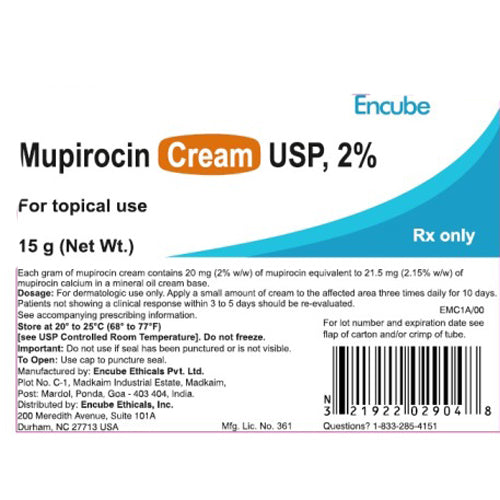 Year End Sale 34%
Original price $ 85.95Current price $ 56.95
Year End Sale 34%
Original price $ 85.95Current price $ 56.95Mupirocin Calcium Cream 2% by Encube 15 gram (RX)
Encube EthicalsNo reviewsMupirocin Calcium Cream 2% is a topical antibiotic ointment that is used to treat skin infections. The cream is effective in treating a variety of ...
View full details🔒 Medical License Required -
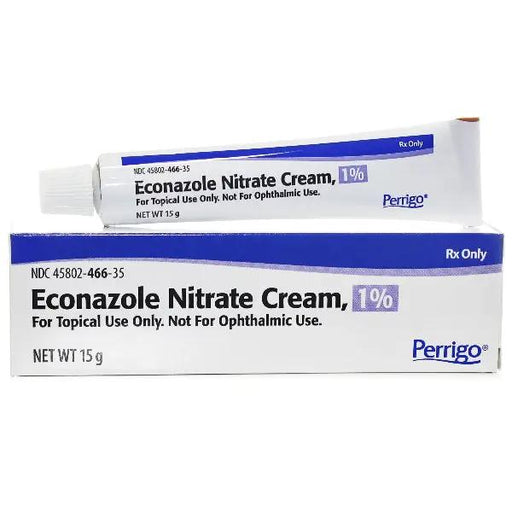 Year End Sale
from $ 6.95
Year End Sale
from $ 6.95Econazole Nitrate Cream 1%
Padagis USNo reviewsEconazole Nitrate Cream is used to treat a variety of fungal skin infections such as athlete's foot, jock itch, and ringworm. This medication cream...
View full details🔒 Medical License Required -
 Year End Sale 29%
Original price $ 54.75Current price $ 38.95
Year End Sale 29%
Original price $ 54.75Current price $ 38.95Ciclopirox Olamine Lotion Topical Suspension 0.77%
Padagis USNo reviewsCiclopirox Olamine lotion is an antifungal medication used to treat various fungal skin infections, such as athlete's foot, ringworm, jock itch, an...
View full details🔒 Medical License Required
>Discover powerful antifungal creams designed to effectively treat athlete’s foot, ringworm, jock itch, candida, and yeast infections. Our clinically-tested, fast-acting creams relieve itching, burning, redness, and irritation while restoring healthy skin. Infused with active ingredients like clotrimazole and miconazole, these dermatologist-recommended creams are safe for sensitive skin. Shop our antifungal creams for rapid relief and long-lasting protection against fungal infections.



































